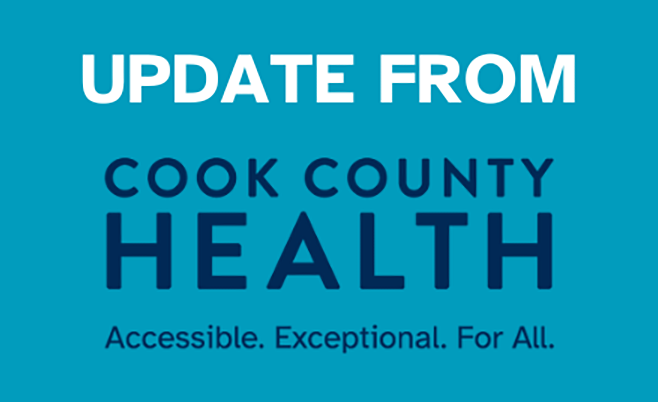Cook County Department of Public Health (CCDPH) officials are advising residents to take precautions against the extremely cold temperatures today and in the coming days.
“The temperatures we are experiencing are dangerous and can lead to serious health issues such as frostbite, hypothermia, and heart problems if residents are not prepared,” said CCDPH chief operating officer, Terry Mason, MD, FACS.
Be Aware. Get Prepared. Take Action. Use these safety suggestions:
Dress for the cold:
- Wear a warm hat, and keep feet and hands warm and dry.
- Cover as much of your face as possible while outside, breathe through a scarf to warm air before it enters your lungs.
- Wear several layers of lightweight clothing, rather than one or two layers of heavy garments. The air between the garments acts as insulation to keep the body warmer.
Keep your vehicle prepared:
- Allow extra time when traveling and start your journey with a full tank of gas.
- Monitor weather conditions carefully and adhere to travel advisories.
- Keep a winter storm kit in your car. This should include blankets, food, flares, chains, gloves and first aid supplies.
Stay prepared at home:
- Do not use an oven as a heating device. Read directions before using space heaters and other portable heating units.
- Make sure cracks in windows and doors are repaired. For a quick fix, use towels, rugs or newspapers.
- Have bottled water, canned foods, flashlights and batteries on hand in case a winter storm keeps you indoors.
- Residents who have no heat should check with their local municipality or township about warming centers.
Stay healthy:
- Seek medical attention immediately if you have these symptoms:
- hypothermia: confusion, dizziness, exhaustion and severe shivering
- frostbite: gray, white or yellow skin discoloration, numbness, waxy feeling skin
- Drink warm, caffeine-free, non-alcoholic beverages to stay warm and hydrated.
- Check with your doctor or pharmacist about medications that could cause problems in cold weather.
- The elderly can be particularly vulnerable to extreme weather conditions; check often to make sure they are safe.

